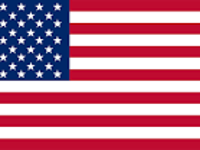
Dermatology Blades
At Baucor, we specialize in manufacturing custom surgical blades designed explicitly for dermatology procedures. Our surgical blades are engineered to offer accuracy and precision, which are vital for successful surgical procedures. We collaborate with industry partners to create custom surgical blades that meet their needs. We aim to produce high-quality, innovative, and precise custom blades that meet and exceed our customers' expectations.
What is dermatology?

Dermatology is a specialized medical field that involves the diagnosis and treatment of several disorders that affect the integumentary system, which includes the skin, hair, and nails; dermatologists use various diagnostic techniques and treatment modalities to address conditions such as skin cancer, psoriasis, eczema, acne, and other inflammatory skin conditions. Dermatologists also play a crucial role in preventing skin damage.
What types of custom surgical blades does Baucor manufacture?
We manufacture a wide range of custom surgical blades tailored to dermatological procedures. From specialized excision blades to intricate scalpels designed for Mohs surgery, each blade is meticulously inspected to ensure it meets the surgeons' requirements.

Custom Micro Blade

Custom Scalpel

Custom Ingrown Nail Shaver

Custom Ingrown Nail Shaver
GET A QUOTE
How is dermatology surgery performed?
Dermatology procedures vary in complexity, ranging from dermatoses to complex skin cancers. Each intervention demands a unique approach depending on the nature of the condition, whether it is a malignant tumor or a cosmetic concern.
Typically, dermatologists evaluate the patient’s skin condition, medical history, and any relevant tests, which help to determine the appropriate surgical approach and ensure patient safety. Dermatology surgeries are often performed under local anesthesia, numbing only the specific area where the procedure is performed.
Dermatologists can perform diverse types of procedures:
- Simple Excisions:
For the removal of benign lesions, in this type of procedure, the dermatologist uses a scalpel to cut around and remove a margin of normal skin along with lesions such as skin tags, lipomas, or cysts. - Mohs Micrographic surgery:
This type of surgery is used to remove certain skin cancers, in which the surgeon removes thin layers of tissue and examines each layer under a microscope until no cancerous cells remain. - Biopsies:
A biopsy is performed by removing a small tissue sample for diagnostic purposes. - Laser surgery:
Laser is utilized in dermatology surgery for various purposes, including removing tattoos and lesions. Laser surgery is precise and can target tissues without affecting surrounding tissues. - Cryosurgery:
Cryosurgery uses liquid nitrogen to freeze and destroy abnormal cells. It treats warts, actinic keratoses, and specific precancerous lesions. - Reconstructive procedures:
Reconstructive procedures are performed after removing a skin lesion or tumor to optimize aesthetic outcomes.
Dermatological procedures require precision and delicacy, involving intricate skin anatomy knowledge, advanced techniques, and equipment. To achieve the best possible patient outcomes, surgeons must have access to the most superior tools available, such as custom-made blades. These tools are indispensable in demanding surgeries, allowing surgeons to perform procedures with the utmost precision and delicacy.
How does Baucor collaborate with industry partners?
Baucor collaborates closely with dermatology surgeons, medical device engineers, and industry partners to better understand their unique requirements and challenges. This enables us to design, develop, and manufacture surgical tools of the highest performance. Our collaborative approach ensures that our products are unparalleled in the industry, and we take pride in delivering exceptional products to our customers.
What are Baucor's quality assurance and regulatory?
At Baucor, we adhere to strict quality assurance and regulatory regulations to ensure patient safety and satisfaction. Our manufacturing process undergoes rigorous testing, and our blades comply with relevant industry regulations, which ensures that each blade we manufacture meets and exceeds the standards and precision required in dermatology.
How are medical blades manufactured?
- Cutting:
The first step in manufacturing is to use a CNC machine to cut the blade to the desired shape. - Heating:
Next, the blade is put through a heat treatment process to harden the metal and make it more durable. - Sharpening:
After heating, the blade is sharpened to remove any imperfections. A grinding process is then used to refine and make the blade sharper. - Coating:
Coating the tips of blades can help the blade better withstand wear and tear. It can prolong the blade's lifespan.
BAUCOR'S CAPACITY & CAPABILITIES


Which material should you use for the blades?
The selection of material for surgical blades is based on several factors, such as the surgeon's preference, the type of surgery, and instrument requirements. The surgical blades must meet stringent standards for biocompatibility, sterilization, precision, and durability to ensure the patient's safety and the procedure's success.
At Baucor, we offer the following materials for surgical blades:
• Stainless steel:
This is the most used material for surgical instruments. It is durable, corrosion-resistant, and easy to sterilize.
• Carbon steel:
Another option for surgical blades. It is known for its sharpness and ability to retain its edge well. However, it is less resistant to corrosion than stainless steel.
• Tungsten carbide:
This material is an excellent choice for the tips or edges of surgical blades. It is composed of tungsten and carbon, which makes it durable and resistant to wear.
How do medical blades cut?
A medical blade can make the following cuts:



Most used medical blades :
Medical incisions may require various blade shapes based on specific surgical needs.













Conclusion
In conclusion, Baucor prides itself on its ability to deliver exceptional surgical blades designed to meet the unique needs of dermatological procedures. Our unwavering commitment to innovation, quality, and collaboration has positioned us as a leader in the industry, and we remain committed to driving advancements in dermatology by creating custom-made surgical blades.


 English
English






